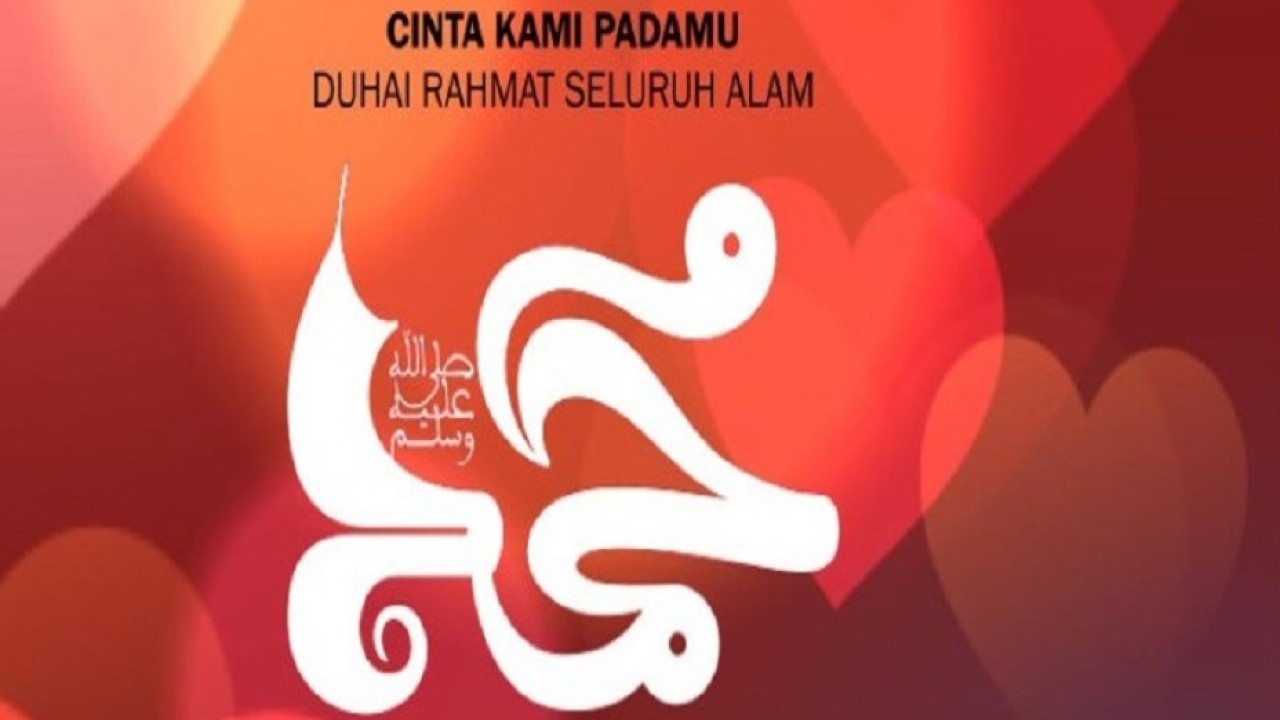The Prophet's Teachings: Strengthening Brotherhood and Unity
NU Online · Selasa, 26 Oktober 2021 | 14:25 WIB
None of the prophets whom Allah has given a firm "stamp" as a messenger of mercy except Prophet Muhammad (PBUH). It is not surprising that in a narration, Prophet Musa (as) always hoped to be made as the people of Prophet Muhammad, in the hope of getting the shade of intercession from him.
Although the prophetic period lasted 14 centuries ago, Prophet Muhammad has remained a role model for all time. He was indeed sent as a mercy to all mankind, both those who received his message and those who did not. Among the examples of the Prophet is a strong commitment and concrete steps in bringing people together.
The following are the efforts of the Prophet in an effort to build brotherhood and unity among people, both within Muslims and between followers of different religions.
1. Forming a brotherhood between Ansar and Muhajirin
After the Prophet made the migration from Mecca to Medina, there were important policies he took, among the most famous of which was the brotherhood of Ansar (helpers from Medina) and Muhajirin (immigrants from Mecca). The companions of the Ansar were the companions of the Prophet in Medina who received the arrival of the Prophet after the hijrah, while the companions of the Muhajirin were the companions of the Prophet who migrated with the Prophet from Mecca to Medina.
These two groups are brothers based on the principles of truth, equality, and the right to inherit property after death. Their ties of brotherhood are stronger than those of any kinship. Then, the Messenger of Allah emphasized the ties of brotherhood among all the companions in general.
According to Sheikh Said Ramadhan al-Buthi, this provision remained in effect until it was finally deleted (nasakh) when the Battle of Badr Kubra broke out, namely when the verse was revealed,
وَاُولُوا الْاَرْحَامِ بَعْضُهُمْ اَوْلٰى بِبَعْضٍ فِيْ كِتٰبِ اللّٰهِ ۗاِنَّ اللّٰهَ بِكُلِّ شَيْءٍ عَلِيْمٌ
It means, "Those who have kinship relations are partly more entitled to each other (than those who are not relatives) according to the Book of Allah. Verily, Allah is All-Knowing of all things” (Surah Al-Anfal: 75).
This verse removes the previous provisions. This means that inheritance rights based on Islamic brotherhood ties are no longer valid. Inheritance rights are returned based on blood ties and kinship even though in essence, Muslims are still brothers to each other. Before the revelation of the above verse, the friends of the Muhajirin could inherit the inheritance of the friends of Ansar, because of the brotherly ties that the Prophet had forged between them, even though they had no blood or kinship (Shaykh Ramadhan al-Buthi, Fiqhus Sirah Nabawiyah, [Bairut: Darul Fikr , 2019], p. 161).
On that basis, the Prophet made brotherhood and unite between Muhajirin and Ansar as the foundation for applying the principles of social justice. All of that was then applied in a society that was recognized by the world as having the most superior and most sophisticated social system of its time.
Step by step, the principles of justice develop in the form of laws and regulations that are binding. However, everything is still based on the main foundation, namely ukhuwwah Islamiyah (Islamic brotherhood). If it were not for that foundation, which plays a role in strengthening the Islamic creed, it would be impossible for the principles of justice to have a positive effect on the development of Islamic society and strengthening its existence.
As emphasized by Sheikh al-Buthi, the principle of brotherhood instilled by the Prophet in the Islamic community in Medina is not just an empty slogan that is discussed by word of mouth, but the truth of practice that is directly connected to the reality of life and social relations between Muhajirin and Ansar and is led directly by him ( Sheikh al-Buthi, Fiqhus Sirah Nabawiyah, 2019: 163).
As a result, this vision and mission became the most effective means of realizing collective unity at that time. All of this shows that the Prophet's efforts in building brotherhood and social unity were very serious, so that he was directly involved in setting an example in applying this noble vision. On this stand, social ties with the principle of faith in Allah SWT are increasingly intertwined.
2. Interfaith Unity and Peace
This second attempt coincided with the events of the battle of Abwa, the first battle in Islam that took place in the month of Safar. Muslims initiated a peace agreement. The purpose of this agreement is nothing but unity and harmony, without bloodshed. Muslims did not interfere with followers of other religions, and vice versa.
Sheikh 'Ali bin Ibrahim bin Ahmad al-Halabi (died 1044 H) in one of his books said, among the efforts of the Prophet to build unity and harmony was to make an agreement between Muslims and the Bani Dlamrah. The contents of the agreement are as follows:
بِسْمِ اللّهِ الرّحْمَنِ الرّحِيمِ. هَذَا كِتَابٌ مِنْ مُحَمّدٍ رَسُولِ اللّهِ لِبَنِي ضَمْرَةَ، فَإِنّهُمْ آمِنُونَ عَلَى أَمْوَالِهِمْ وَأَنْفُسِهِمْ وَأَنّ لَهُمْ النّصْرَ عَلَى مَنْ رَامَهُمْ إلا أَنْ يُحَارِبُوا فِي دِينِ اللّهِ. وَإِنّ النَّبِي إذَا دَعَاهُمْ لِنَصْرِهِ أَجَابُوهُ، عَلَيْهِمْ بِذَلِكَ ذِمّةُ اللهِ وَذِمّةُ رَسُولِهِ، وَلَهُمْ النّصْرُ عَلَى مَنْ بَرَّ مِنْهُمْ وَاتّقَى.
"In the name of Allah, the Most Gracious, the Most Merciful. This is a letter of agreement from Muhammad Rasulullah to the Bani Dlamrah. Indeed, their property and their lives are guaranteed security, and indeed they will find help against those who attack them, unless they fight against the religion of Allah. And if the Messenger of Allah asked them for help, they would also help him. They are guaranteed security from Allah and His Messenger and are given help from those who are good and keep (the covenant). (Shaykh Ali al-Halabi, Insanul 'Uyun fi Siratil Aminil Ma'mun, [Bairut, Darul Kutub Ilmiah: 2004], juz II, p. 347).
As a result, the agreement agreed upon by the Prophet with the Bani Dlamrah became the most effective way to build unity and harmony. Muslims and Bani Dlamrah were no longer fighting each other. Then it was created inter-religious unity. Even, the fruit of this agreement actually made the Bani Dlamrah even more interested in converting to Islam, and not a few of those who took the shahada before the Prophet after the agreement.
There are many agreements between the Prophet and a coalition of infidels besides those mentioned above, with the aim that inter-religious unity is re-created, and there will be no more war between them. Among them are the efforts of the Prophet in eliminating war and knitting unity between Muslims and the Quraysh, namely the peace agreement (suluh) of Hudaibiyah, after Muslims were prevented from performing worship.
In addition, the Prophet also united the Auz and Khazraj tribes, having previously killed each other. Another effort to foster unity and brotherhood is to eliminate tribal racism and fanaticism. The Prophet also built a mosque to build a sense of solidarity between companions. (Shaykh Ali Muhammad ash-Shalabi, Sirah Nabawiyah 'Irdu Waqai' wa Tahlilul Ahdats, [Lebanon, Bairut, Darul Ma'rifah, 2008: 167).
From the explanation above, we can understand that the history of Islam during the prophetic period is proof of the importance of unity and harmony between Muslims and religious communities. The role and efforts of the Prophet in preventing divisions in the midst of a multicultural society is a very effective step to build this noble vision and mission.
The unity of the Ummah has always been one of the ideals of Prophet Muhammad (PBUH). Therefore, one of the visions and missions that he strives for is unity. In fact, if looking at the various events involving Muslims and infidels, the Prophet used alternative methods to direct them towards unity.
The brotherhood of Ansar and Muhajirin, the peace agreement with the Bani Dlamrah, Suluh Hudaibiyah, and several other agreements, were the best ways that the Prophet tried to create brotherhood, unity and religious solidarity. Therefore, the efforts and struggles of the Prophet at that time, should be an example for Muslims today, to further strengthen the ties of brotherhood and unity, so that harmony and peace could be felt by anyone, including this multicultural nation like Indonesia.
Ustadz Sunnatullah, teaching staff at the Al-Hikmah Darussalam Islamic Boarding School Durjan Kokop Bangkalan.
This content is the result of a collaboration between NU Online and the Public Relations, Data and Information Bureau of the Indonesian Ministry of Religious Affairs
Terpopuler
1
KH Thoifur Mawardi Purworejo Meninggal Dunia dalam Usia 70 tahun
2
Targetkan 45 Ribu Sekolah, Kemendikdasmen Gandeng Mitra Pendidikan Implementasi Pembelajaran Mendalam dan AI
3
Taj Yasin Pimpin Upacara di Pati Gantikan Bupati Sudewo yang Sakit, Singgung Hak Angket DPRD
4
Kuasa Hukum Rakyat Pati Mengaku Dianiaya hingga Disekap Berjam-jam di Kantor Bupati
5
Amalan Mengisi Rebo Wekasan, Mulai Mandi, Shalat, hingga Yasinan
6
Ramai Kritik Joget Pejabat, Ketua MPR Anggap Hal Normal
Terkini
Lihat Semua





